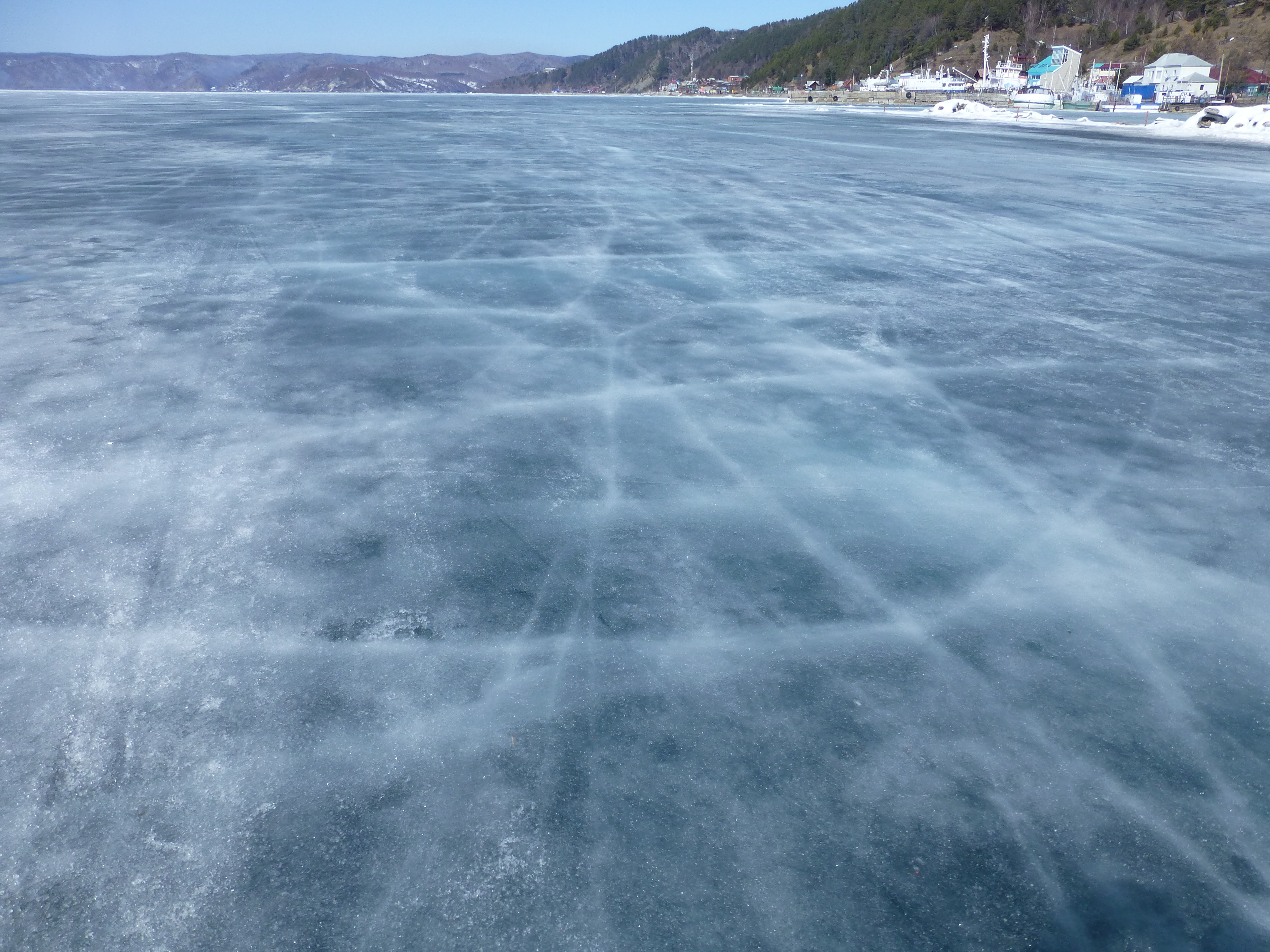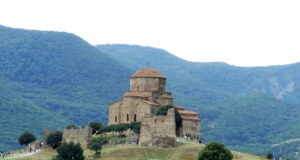In brief: Baikal lake is extraordinary in many ways, but its ice is the big draw.
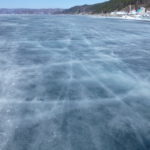
The best way to enjoy Lake Baikal in wintry Siberia, we found, is just to get on its ice – by foot, skis, car, whatever.
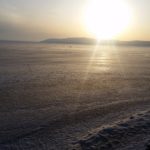
Baikal is the deepest (1.6 kilometers/1 mile), clearest, most ancient and one of the largest fresh water lakes in the world. Its unique ecosystem supports over 3500 species of flora and fauna, of which 2600 are endemic, found nowhere else in the world. These are just some of the discoveries we made at the surprisingly rich museum about the lake at its main town, Listvyanka.
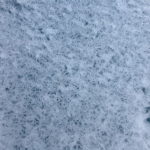
Baikal’s frozen surface was our real reason for visiting Russia during March, when Russia’s Siberia is still quite cold despite a sun that can add a tinge of warmth.
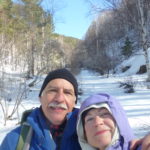
We especially enjoyed the sun during a hike up a gentle ravine sloping away from the lake. It was the brightest of sunny days and the trail was packed with snow – not so deep that it was a slog, but truly a hike. What the trees lacked in leafy green, they made up for in subtle colors and distinct animal tracks.
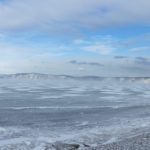
We knew we had missed the ideal few months, January and February, when the surface freezes into translucent stretches and often displays fantastical ice formations.
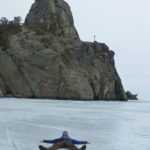
But we found so much to enjoy in March as well, especially during our all day fan-driven hovercraft trip on the still very solid surface to Sandy Bay. We had seen several of these ice vehicles during the first days of our stay, a good sign that the ice was solid still. Once in one, we were thrilled to zip along the ice, jostling over frozen bumps and troughs, especially with the goal of visiting one of the lake’s best features.
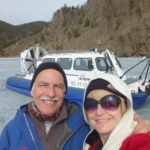
Coves filled with cracked, snow-flecked or crystalline ice. Glistening sunsets. Snow-capped mountains ringing the lake. Rocky islands stuck in the ice.
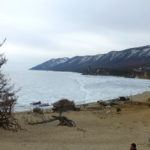
And, for good measure, a controlled spin-out along the way.
(Also, for more pictures from Russia, CLICK HERE to view the slideshow at the end of the itinerary page.)


